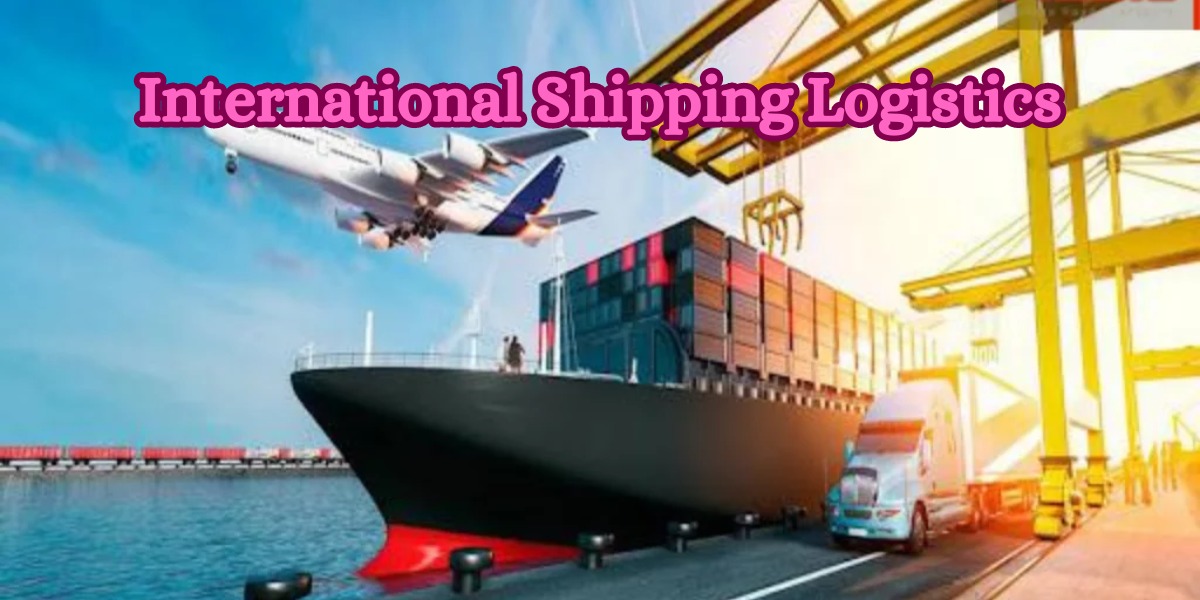International Shipping Logistics: Streamlining Global Trade
In the vast landscape of global commerce, the seamless movement of goods across borders and continents is a cornerstone for businesses worldwide. International shipping logistics stands as the bedrock of this process, encompassing a myriad of strategies, systems, and technologies to ensure the smooth flow of goods from one point to another. From intricate supply chain networks to evolving transportation modes, the realm of international shipping logistics is an intricate web of interconnected processes.
Understanding International Shipping Logistics
What is International Shipping Logistics?
International shipping logistics refers to the comprehensive planning, coordination, and management of shipping processes involved in transporting goods and commodities across international borders. It involves strategizing the most efficient routes, modes of transportation, compliance with regulations, and timely delivery while minimizing costs and maximizing efficiency. kingfeast.uk
Key Components of International Shipping Logistics
Supply Chain Management
A fundamental aspect of international shipping logistics, supply chain management, involves overseeing the entire journey of a product, from its inception to its delivery to the end consumer. It includes procurement, production, inventory management, warehousing, and distribution, all of which must work in harmony to achieve optimal efficiency.
Transportation Modes
Various transportation modes, such as ocean freight, air freight, road transport, and rail freight, play pivotal roles in international shipping logistics. Each mode has its advantages and limitations, and selecting the most suitable mode depends on factors like urgency, cost, type of goods, and distance. infobeast.uk

Customs Compliance and Documentation
Navigating through the complex web of customs regulations and documentation is crucial in international shipping logistics. Ensuring compliance with international trade laws, tariffs, and customs requirements is vital to prevent delays or additional expenses.
Technology Integration
Technological advancements have revolutionized international shipping logistics. The integration of cutting-edge technologies like IoT (Internet of Things), AI (Artificial Intelligence), blockchain, and data analytics has optimized processes, providing real-time tracking, inventory management, and predictive analytics.
Challenges in International Shipping Logistics
Global Trade Regulations
Navigating the intricate web of global trade regulations, tariffs, and compliance requirements poses significant challenges. The evolving nature of international trade policies adds complexity to logistics operations, demanding constant adaptation and vigilance. chieftown.uk
Supply Chain Disruptions
Natural disasters, geopolitical tensions, pandemics, or unforeseen events can disrupt supply chains, leading to delays, shortages, or increased costs. Building resilient supply chains capable of weathering disruptions is imperative in mitigating these risks.
Sustainability and Environmental Concerns
The environmental impact of transportation in international shipping logistics is a growing concern. Striking a balance between efficiency and sustainability is crucial, prompting the adoption of eco-friendly practices and the exploration of alternative fuel sources.
Future Trends and Innovations in International Shipping Logistics
Automation and Robotics
The integration of automation, robotics, and autonomous vehicles is set to transform the landscape of international shipping logistics. From automated warehouses to self-driving trucks, these technologies promise increased efficiency and reduced operational costs.
Data Analytics and Predictive Insights
Harnessing the power of data analytics and predictive insights enables proactive decision-making. Real-time data analysis helps in anticipating market trends, optimizing routes, and preventing potential disruptions.
Green Logistics and Eco-Friendly Initiatives
Embracing sustainable practices, such as using alternative fuels, reducing carbon footprints, and adopting eco-friendly packaging, is becoming a priority. Green logistics initiatives aim to minimize environmental impacts while maintaining operational efficiency.
In conclusion, international shipping logistics is a complex yet pivotal aspect of global trade. The evolving landscape demands constant adaptation to technological advancements, regulatory changes, and environmental considerations. Navigating these challenges requires a holistic approach, integrating technology, innovation, and sustainable practices to ensure efficient and resilient global supply chains.
Cargo From Dubai to Turkey
Transporting cargo from Dubai to Turkey involves a dynamic process that requires expertise and a well-organized logistical infrastructure. The route spans across various modes of transportation, including sea, air, and land. Amerasian Shipping Logistics Corp excels in managing this route, offering efficient services that guarantee the safe and timely delivery of cargo.
Cargo To Qatar From UAE
Shipping cargo to Qatar from the UAE is a task that demands precision and adherence to stringent regulations. Amerasian Shipping Logistics Corp understands the complexities involved in this route and has established a robust system to ensure smooth operations. With a keen eye on timelines and compliance, Amerasian ensures a hassle-free transit for cargo destined for Cargo To Qatar From Uae.
Shipping From Dubai to Saudi Arabia
The shipping route from Dubai to Saudi Arabia is a crucial trade corridor, and Amerasian Shipping Logistics Corp has mastered the intricacies associated with it. Whether it’s handling bulk shipments or individual consignments, the corporation’s dedication to efficient operations remains unmatched. By leveraging its expertise, Amerasian guarantees a seamless shipping from Dubai to Saudi Arabia.





